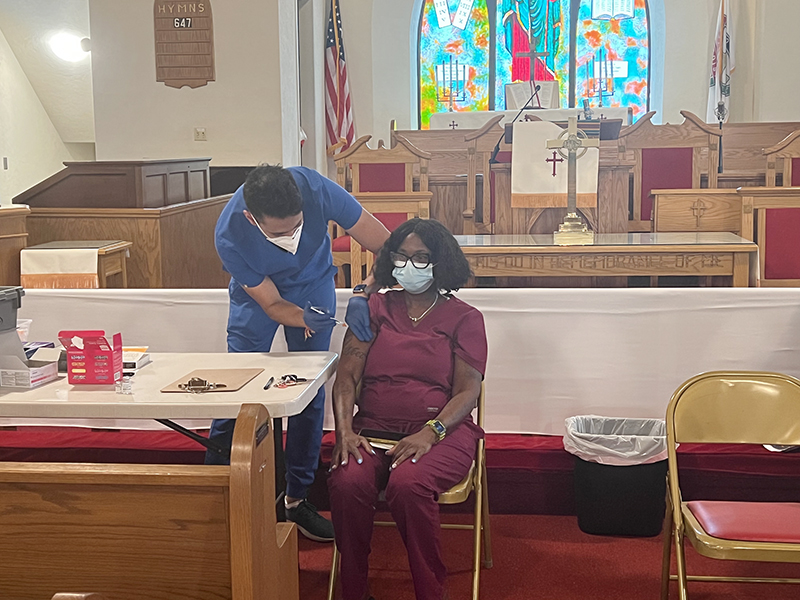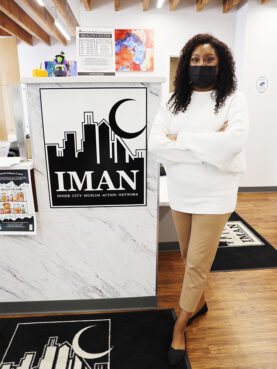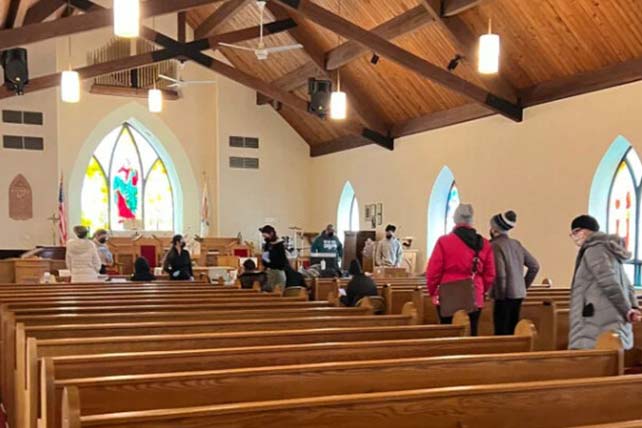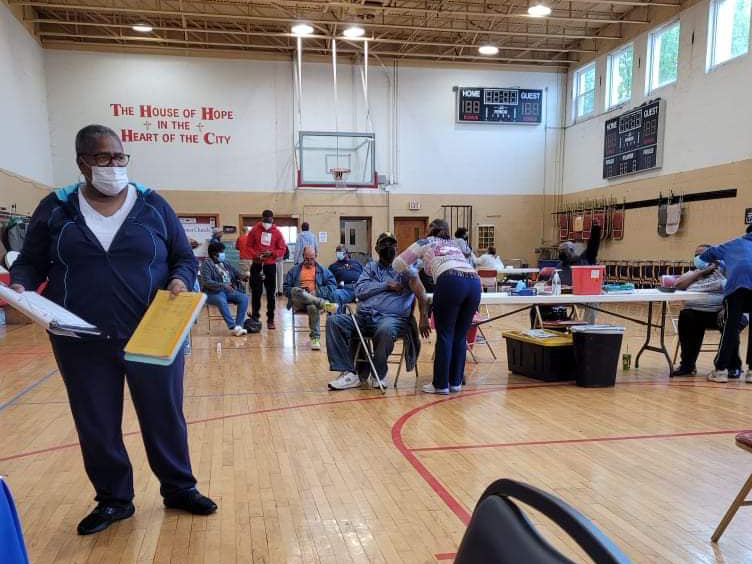(RNS) — The U.S. COVID-19 public health emergency declared under President Donald Trump on Jan. 31, 2020, may be ending on Thursday (May 11), but across the country faith-based groups that provide health care to communities of color say the availability of vaccinations remains important, even if the number of shots they administer is declining.
“I do not believe that we can turn and walk away and say, ‘Hey, OK, we have COVID under control so now let’s just pack up our tools and go home,’” said the Rev. James L. Patterson, CEO of the Partnership of African American Churches in Charleston, West Virginia. “No, we need to continue to deal with the health outcomes that people are suffering.”
The PAAC coordinates with other churches, Catholic Charities, the Salvation Army and several universities to provide vaccines at 15 clinic locations.
RELATED: 3 Ways COVID-19 Launched the Tech Revolution of the Church
Patterson said his organization has received $7.2 million in funding from federal, state and private sources to help provide vaccines and testing over the last three years. With the slowing of COVID-19 cases, he hopes the partnership, which has already been providing flu shots and glucose and blood pressure checks, will be able to expand to address wider health problems.
Community members receive vaccinations at a location organized by the Partnership of African American Churches in Charleston, West Virginia. Photo courtesy of PAAC
“COVID is just the latest pandemic for people of color,” he said. “We’re always in a pandemic. Think about heart disease, diabetes. Those are at pandemic rates in communities of color.”
Over the last few years, African American congregations have provided outsized action on getting people tested and vaccinated.
“Our data shows that not that many congregations served as testing sites and/or vaccination (locations) but almost half of the ones that did were African American,” said Scott Thumma, principal investigator of the Exploring the Pandemic Impact on Congregations project led by the Hartford Institute for Religion Research, adding that “14% of Black churches served as testing or vaccination site compared to 7% of other churches.”
Many African Americans were counting on houses of worship to answer the emergency.
“When FDA made the announcement that the second bivalent was available to 65 plus and immunocompromised, we received phone calls and emails like ‘Are you guys going to have it?’ Fortunately we already had scheduled a clinic,” said the Rev. Carolyn Cavaness, pastor of Bethel African Methodist Episcopal Church in Ardmore, Pennsylvania, which received funding from her county for its work. “They knew that they could come right here to Bethel.”

An individual receives a vaccine at Bethel African Methodist Episcopal Church in Ardmore, Pennsylvania, in September 2022. Photo courtesy of Carolyn Cavaness
Cavaness said her church, which also received state support, helped 2,000 people get COVID-19 vaccinations during the pandemic. Dozens of other AME churches outside Philadelphia have been funded by immunization and pediatric organizations to provide vaccines and other health services.
Bethel, which has inoculated about 200 people since January, is not slowing down, though the mix is expected to continue to shift to vaccinations for other maladies. It has scheduled five clinics to continue to provide vaccinations for the flu as well as COVID-19, shingles and TDAP, which prevents tetanus, diphtheria and pertussis, or whooping cough.

Dr. Brittani James in September 2021 in Chicago. Photo courtesy of IMAN
On Chicago’s South Side, the Inner-City Muslim Action Network’s health center has administered more than 3,400 COVID-19 vaccines and boosters.
“At the height of the pandemic, we were at one time vaccinating approximately 60 patients per day, but that number has decreased over time as more and more people were vaccinated,” said Dabeer Hussain, the organization’s clinical quality manager. “This year, in the past two months, we have given just over 20 vaccines.”
Despite the decrease in demand, Dr. Brittani James, the health center’s medical director, continues to offer the vaccines as she serves those in the community that is predominantly Black and Latinx and about 10% to 15% Arab American.


